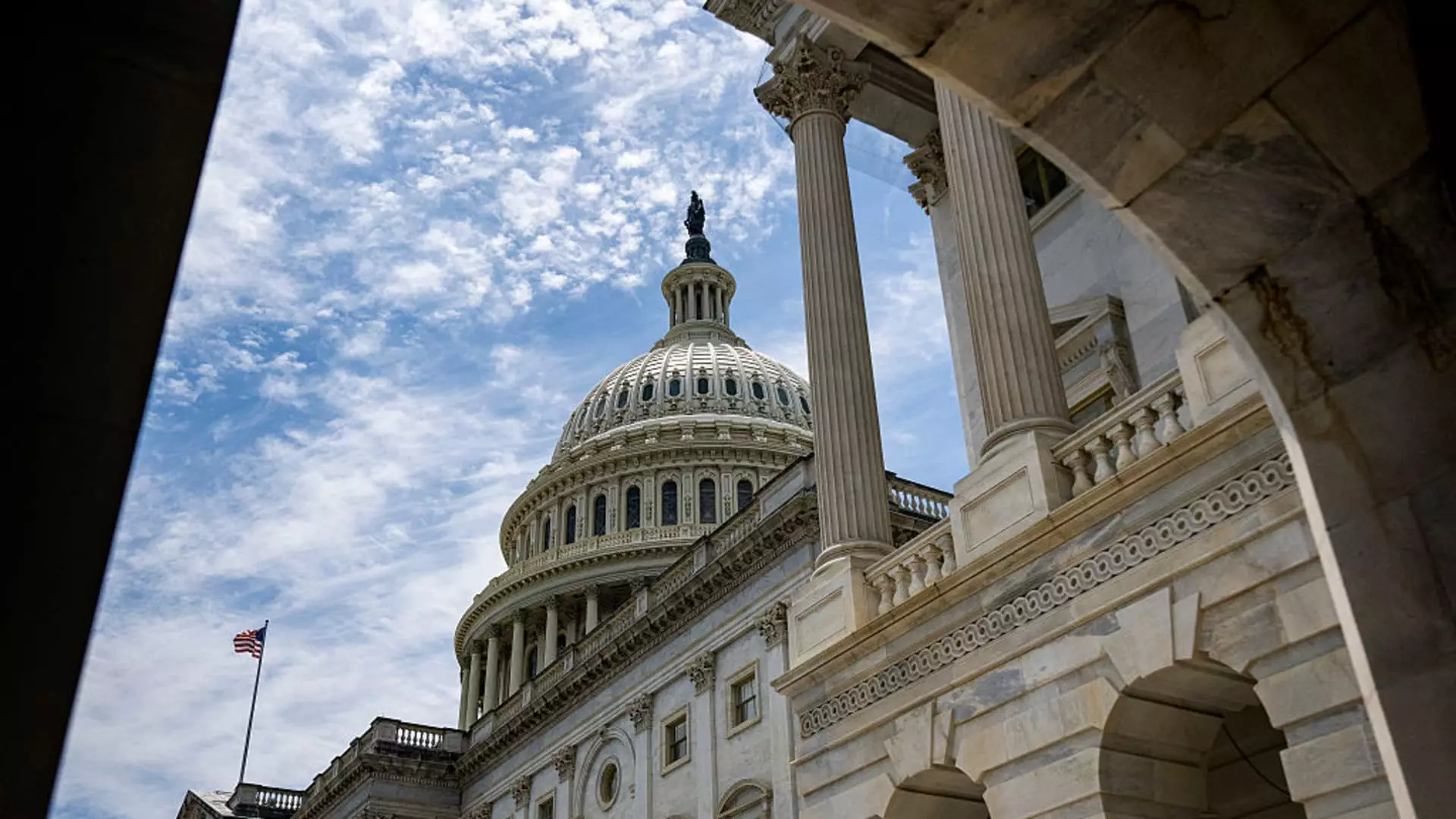The latest iteration of President Donald Trump’s so-called “big beautiful bill” reveals a troubling trend: a legislative push that consolidates power and wealth in the hands of a select few. This bill, far from being a balanced reform, exemplifies how political decisions are increasingly tuned to protect and even enhance the privileges of the rich. Its passage signals a blatant disregard for the needs of the middle class and ordinary taxpayers, favoring instead a system that rewards the already affluent. The implications are stark: wealth accumulation will accelerate for top earners, further widening the gap between the haves and the have-nots, undermining the fabric of economic fairness that should underpin a healthy democracy.
Perpetuation of Tax Cuts and the Illusion of Prosperity
One of the most disconcerting aspects is the promise of extending the 2017 tax cuts into perpetuity—particularly those that benefit high-income individuals earning a million dollars or more. According to the Tax Policy Center, these taxpayers will see an approximate 3% increase in after-tax income by 2026, outpacing the national average gain of 2.5%. In real dollar terms, this translates to an additional $75,000 annually for wealthy Americans, an amount that could fund numerous social programs aimed at reducing inequality or strengthening infrastructure. Instead, these resources flow upward, perpetuating a cycle where wealth consolidates among an elite minority, while the majority continues to struggle with stagnant wages and limited upward mobility.
The Loopholes That Entrench Inequality
The new bill preserves and even expands loopholes that further favor the wealthy, notably the state and local tax (SALT) deduction cap increase. Originally set at $10,000—a figure that disproportionately hurt blue-state residents—this cap has been extended to $40,000 for those earning less than half a million dollars. More troubling, the bill maintains the pass-through entity tax (PTET) loophole, allowing business owners in service industries like law, accounting, and medicine to circumvent the SALT cap completely. This loophole, effectively, deprives the government of revenue ensures that only a handful of affluent taxpayers can fully exploit tax deductions meant to be uniform and fair. Such measures exacerbate the favoritism, reinforcing a tax system skewed to serve vested interests rather than the broader population.
Unlocking Billion-Dollar Gains for Investors and Entrepreneurs
The legislation also dramatically expands benefits for investors in small businesses, reshaping the Qualified Small Business Stock (QSBS) program to exponentially increase the potential for tax-free gains. Increasing the asset cap from $50 million to $75 million and elevating capital gains exclusions from $10 million to $15 million for long-term holders essentially frees-up enormous sums for wealthy entrepreneurs and investors. This is not about fostering innovation; it’s about creating a vehicle for ultra-rich individuals to shield the majority of their gains from IRS scrutiny. The intended outcome? An economy where risk-taking is rewarded primarily through tax loopholes, skewing benefits toward big investors while marginalizing ordinary workers and small-scale entrepreneurs.
The Permanent Estate Tax and Its Implications
The bill makes the estate tax permanent, ensuring that the ultra-wealthy can plan their inheritance with certainty. With exemptions increasing to an eye-popping $15 million per person, or $30 million for a couple, this provision effectively shields a vast majority of wealthy estates from estate taxes. Wealthy families can pass down billions tax-free, cementing intergenerational privilege and entrenching socio-economic divides for generations to come. This move, championed by the affluent, disregards the broader societal need for redistribution, unfairly consolidating resources within a select segment and diminishing opportunities for upward mobility at large.
Taxation Without Fairness: The Diminishing Role of Charitable Giving
While the bill introduces some incentives for charitable donations among lower- and middle-income taxpayers—by allowing them to claim deductions even when taking the standard deduction—it simultaneously curtails the already limited tax advantages available to the wealthy donors who dominate philanthropy. It caps itemized deductions at 0.5% of adjusted gross income, meaning high-income individuals could see a significant reduction in their ability to write off large donations. This shift signals a troubling message: increased focus on benefiting the middle class at the expense of the wealthy’s capacity to contribute and benefit from philanthropy. It appears designed to discourage large charitable gifts from those who can afford the biggest contributions, all while maintaining tax advantages for the ultra-rich through loopholes and exemptions.
This legislative package is less about tax reform and more about consolidating the wealth and political influence of America’s top earners. It embodies an ideology that prioritizes entrenched privilege over equitable growth, creating a system that rewards those already holding power. For center-right liberals advocating limited government intervention and economic freedom, it’s a bittersweet reality—recognizing the importance of fostering entrepreneurship and investment, yet criticizing the prioritization of the affluent’s benefits at the expense of fairness and shared prosperity. The message from this bill is clear: in the ongoing debate over taxes, the future belongs to those who already have much, and the rest are left to bear the costs of a system tilted heavily in their favor.

